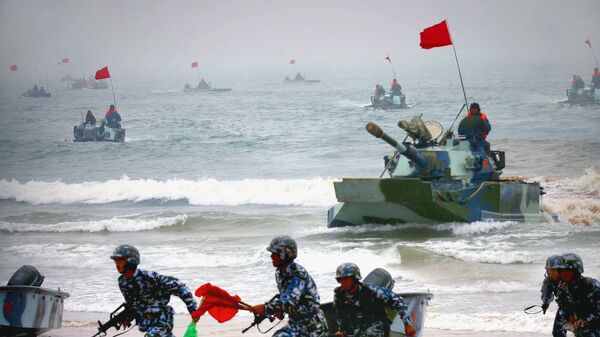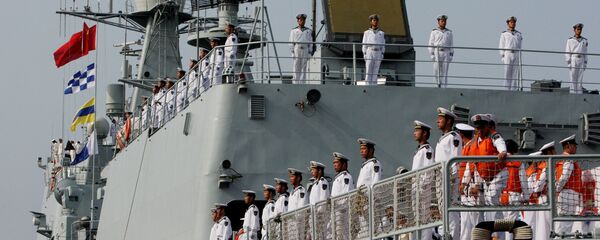According to Sophia Pale of the Institute of Oriental Studies of the Russian Academy of Sciences, following the 2008 global financial crisis Beijing has jumped at the opportunity to strengthen the international positions of the yuan and pushed ahead with serious reforms in the People's Liberation Army (PLA).
"The global economic crisis of 2008 that shattered the faith in the sustainability of the US dollar and weakened the positions of the US opened up new opportunities for the Chinese yuan. Shortly thereafter, global mass media started talking about new Chinese military doctrine. Its new objectives included not only the reform of domestically stationed troops, but also the formation of an international contingent and establishment of Chinese military bases abroad," Pale writes in her article for New Eastern Outlook.
Paul McLeary of Foreign Policy points out that the latest Pentagon report stresses Chinese military deployments and a growing network of logistical support bases overseas.
"This year's report stresses Chinese deployments overseas for peacekeeping and anti-piracy missions, a growing network of logistical support bases in the Indian Ocean — including China's first-ever overseas base in Djibouti — and technological developments that make it easier for Chinese ships to operate farther from home, including better air defenses on new frigates and destroyers and the country's first operational aircraft carrier," McLeary writes.
It is no surprise that the Chinese 6,000-strong military base in Djibouti is getting on the Pentagon's nerves: the base will be located in close proximity to the US permanent military installation Camp Lemonnier with a contingent of 4,000 US troops.
However, Pale explains that the appearance of Chinese armed forces overseas is quite logical: the Chinese Djibouti base and other installations aim to ensure the security of the New Silk Road trade route.
Therefore the PLA is bolstering its technological and military capabilities to operate farther from home.
Likewise, China deployed its war ships — for the first time ever — to the Gulf of Aden back in 2008 to protect the country's trade ships from pirates. Then, in March-April 2015 Beijing sent its naval forces to evacuate more than 500 Chinese civilians from Yemen.
Pale underscores that the ambitious New Silk Road project is of ultimate importance for Beijing. In this context it is understandable that Beijing is seeking to protect its sea and land trade routes which will cross different countries including hotspots and unstable regions.
However, Beijing has no plans to snatch the global leadership from Washington, the scholar stresses.
"Beijing is trying hard to reduce its military expenditures, employing diplomacy to persuade the US to partially 'foot the bill,' hinting that the money will be spent on a good cause — the protection of trade, the main driving force of global progress," she emphasizes.





